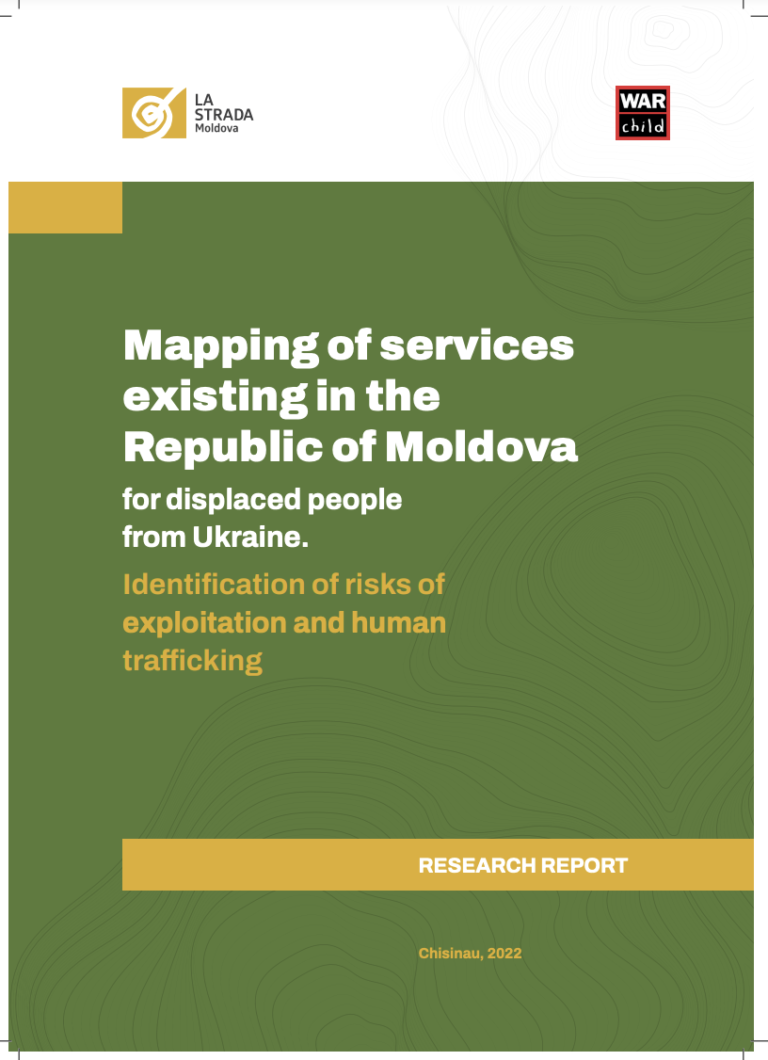The war in Ukraine has caused a high level of forced displacement of the civil population in Europe, with a significant impact on neighboring countries in particular. Since February 24, 2022, until now, the Republic of Moldova (RM) borders have been crossed by more than 650 thousand displaced people (90% Ukrainian citizens and 10% thirdcountry nationals). The large majority of displaced people were transiting the territory of the RM.
More than 80 900 people have remained in Moldova, of which about 14 thousand Ukrainians returned to the territory of the RM after the displacement from Ukraine to European countries. Women (60% of the number of adult people displaced from Ukraine) and children (49% of the total displaced people) represent the large majority of displaced people. Gender-Based Violence Safety Audit Report reveals that RM hosts the highest displaced people per capita.
Moldovan authorities have immediately responded to challenges determined by the war in Ukraine, creating a Single Crisis Management Center to coordinate the assistance and protection provided by various state and non-state actors. It is also important that more than 90 external development partners provide support to RM authorities.4
Various surveys, and analyses have been conducted with the support of development partners, amongst which: Gender mainstreaming to meet the needs of refugees in Moldova5, Brief gender-based analysis during the crisis from Ukraine: Republic of Moldova; Survey on the displacement of Ukrainians and third-country nationals6, Rapid gender analysis7, Preventing human trafficking in refugees from Ukraine. A rapid assessment of risks and gaps in the anti-trafficking response 8, Gender-Based Violence Safety Audit Report 9etc. The analysis revealed that the war in Ukraine increases gender-based risks and vulnerabilities.10 The risks of human trafficking (HT) and exploitation are also high. Among the displaced people, there are adolescents and children unaccompanied or accompanied by third parties, as well as people with reduced economic and informational resources.

